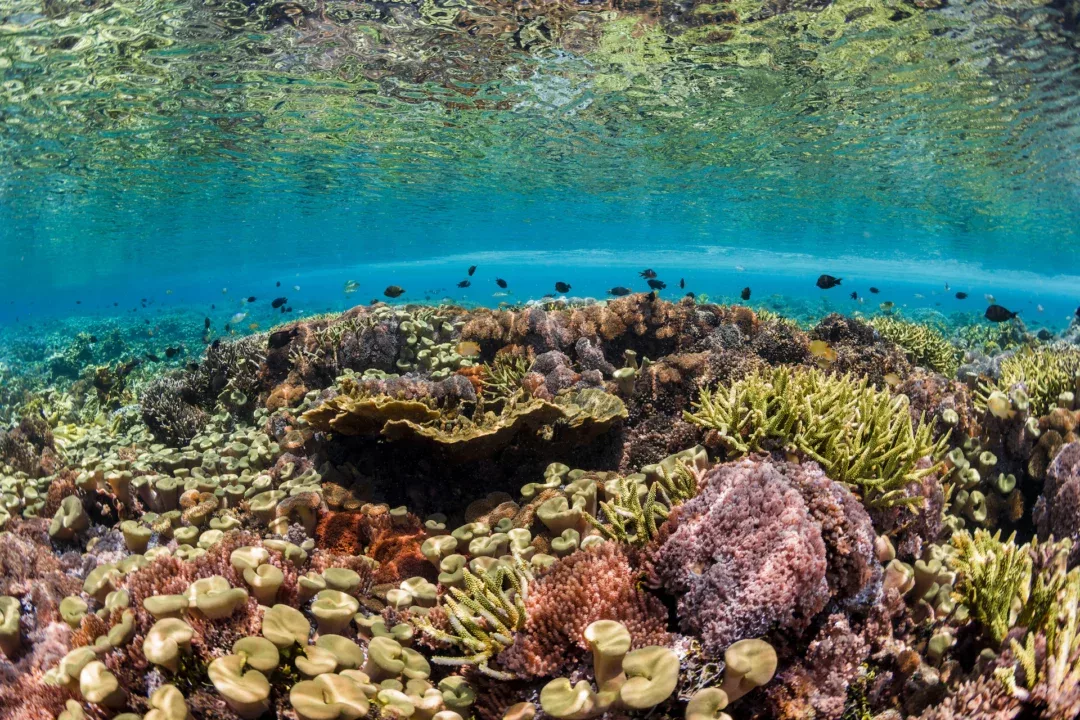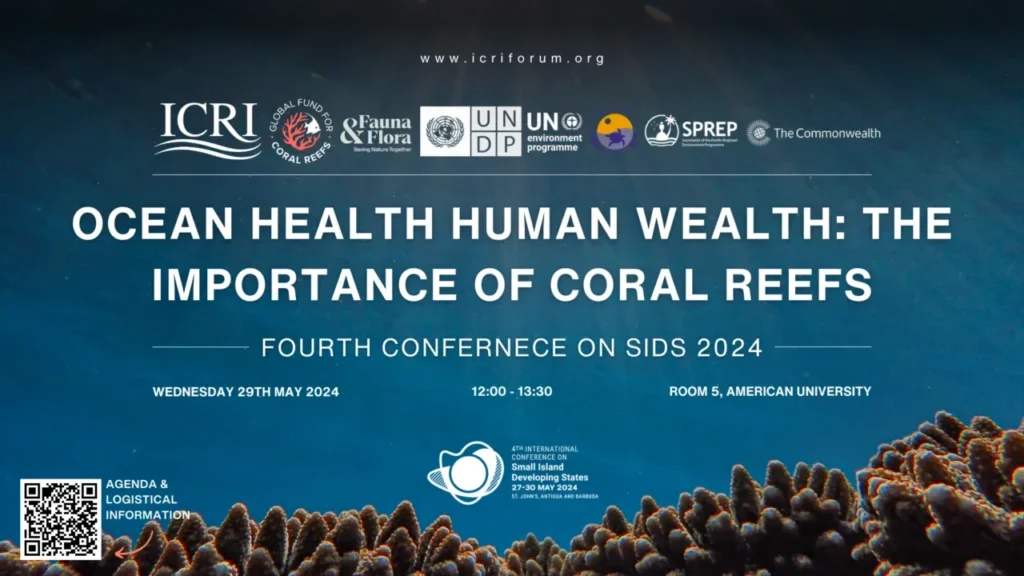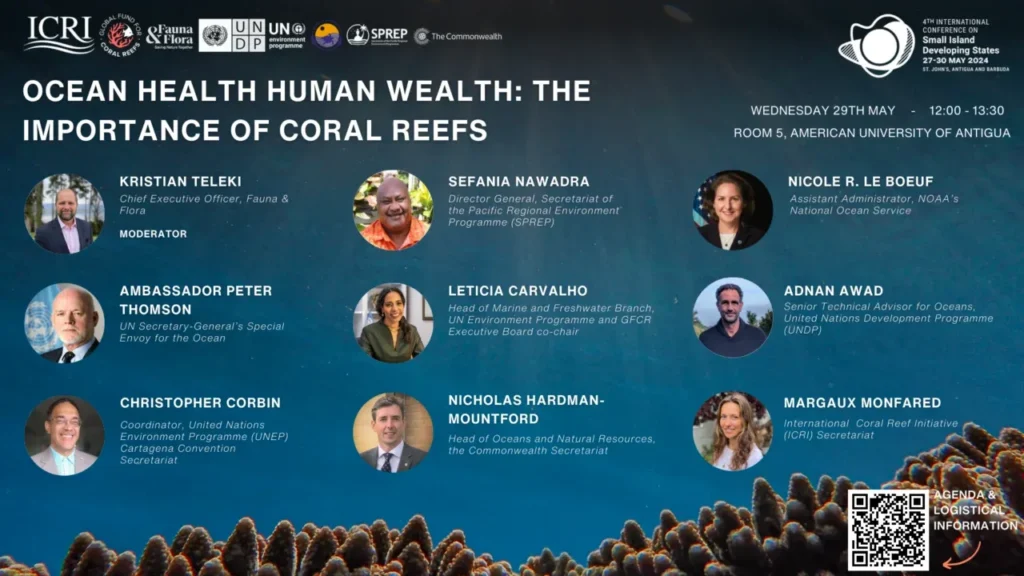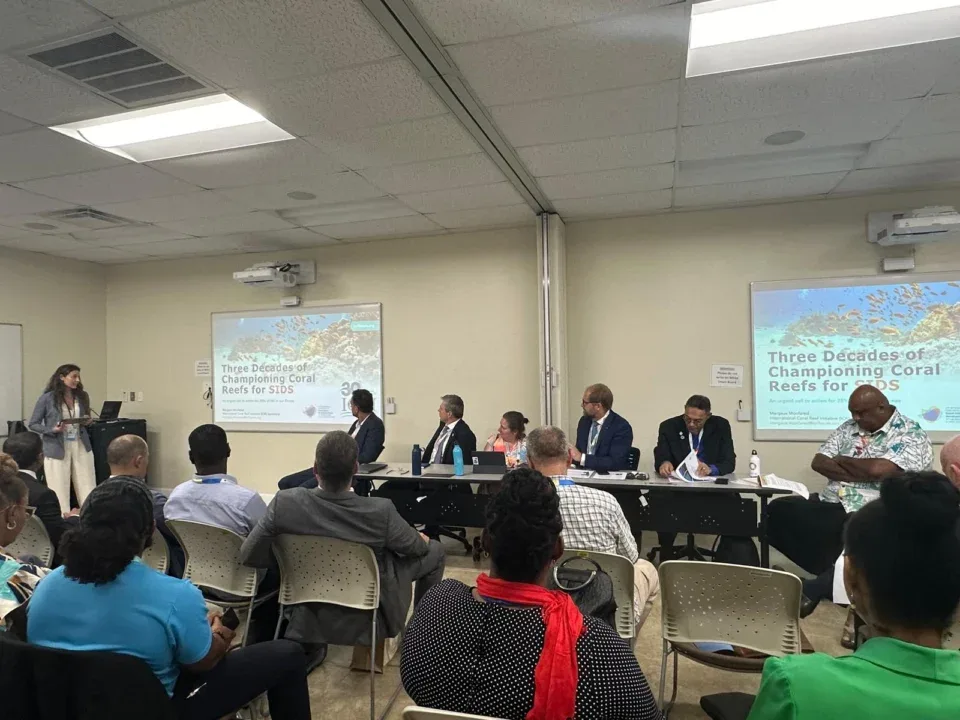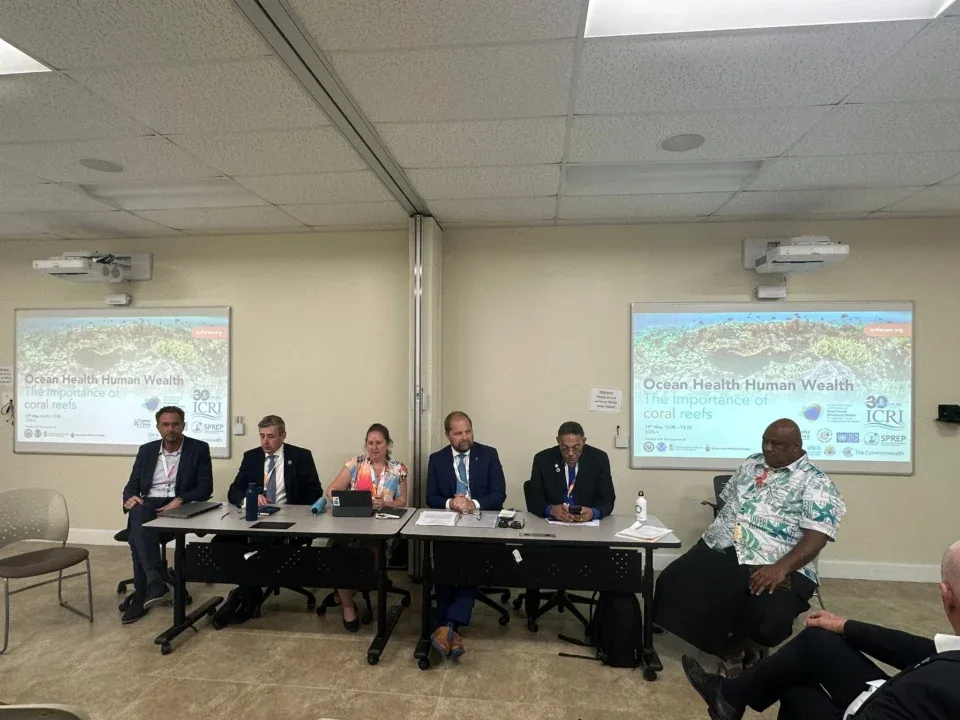Under the overarching theme of “Charting the course toward resilient prosperity”, the Fourth Conference on Small Island Developing States (SIDS-4), aims to assess the ability of SIDS to achieve sustainable development, including the 2030 Agenda and its Sustainable Development Goals. SIDS comprise 37 UN member nations and 20 associate members of regional commissions, uniquely and unfortunately positioned at the forefront of multiple global crises. SIDS find themselves on the frontline, constantly navigating through a cycle of environmental disasters and recovery efforts, which tests their resilience and ability to sustain their communities and economies.
The total land area of SIDS is less than 0.5% of the world’s surface area, but they are home to more than 20% of the world’s biodiversity, and 40% of the world’s coral reefs. But it is estimated that 75% of coral reefs in SIDS are currently threatened by climate change. Healthy coral reefs can contribute to the development of small island states, by providing income through tourism, ensuring local livelihoods and alleviating poverty, as well as acting as natural barriers against disasters such as tsunamis.
With over 25% of ICRI member countries including representatives from SIDS, it was imperative to showcase successful initiatives and share lessons learned, to catalyse transformative change towards a more resilient, and sustainable future for SIDS and their coral reef ecosystems.
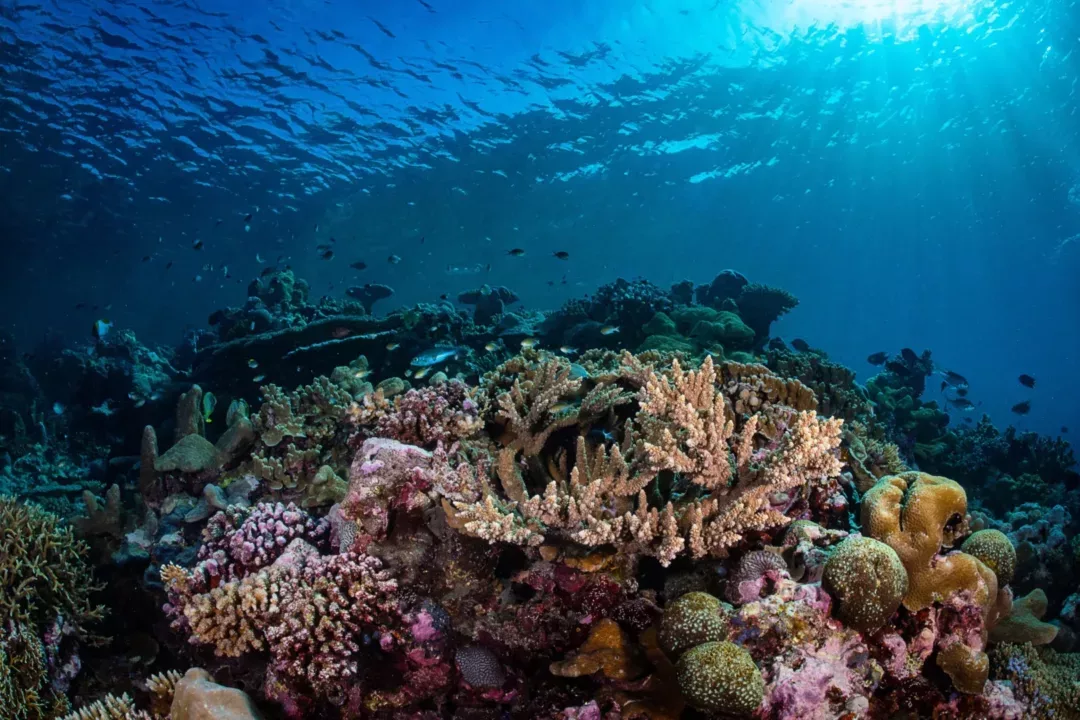
On Wednesday 29th May, ICRI hosted and welcomed a full room to the side event “Ocean Health, Human Wealth: The Importance of coral reefs”, in collaboration with United Nations Development Programme (UNDP), UNEP Cartagena Convention Secretariat, The Commonwealth Secretariat, and The Secretariat of the Pacific Regional Environment Programme (SPREP), moderated by Kristian Teleki, Chief Executive Officer, Fauna & Flora.
The event began with opening remarks from Nicole LeBoeuf, Assistant Administrator of NOAA’s National Ocean Service, stating that “For Island nations, states, and territories, developing sustainable ocean and coastal economic opportunities and solutions, while also expanding their capacity to adapt to climate impacts is critical for prosperity”. This was followed by an emotive video produced as part of ICRI’s ‘Ask the Expert’ Series – What if Coral Reefs Disappeared in 2050?.
Coral reefs play a vital role for both people and nature. Margaux Monfared, ICRI Secretariat, provided an overview of ICRI and three decades of championing coral reefs for SIDS. ICRI remains a critical mechanism of science to policy, ensuring that policy is guided by the best available science, and is a major player in the global effort to safeguard coral reefs, by advocating for policies that prioritise their protection and resilience in the face of ongoing threats.
Next, we heard the importance of people and reefs from both the Pacific and Caribbean Regions. Sefanaia Nawadra, Director General, SPREP, emphasised the need for continued support in the region which hosts 27% of the world’s coral reefs, and highlighted the importance of coral reefs to the future of people in the Pacific whilst Christopher Corbin, Co-ordinator, UNEP Cartagena Convention Secretariat, stressed that protecting coral reefs is protecting livelihoods. The Caribbean Region represents only 1% of the Earth’s marine environment but hosts 10% of the world’s coral reefs. He highlighted the continued support and involvement of the region for ICRI’s operational network the Global Coral Reef Monitoring Network, with the next status of coral reefs of the Caribbean report in progress.
Nicholas Hardman-Mountford, Head of Oceans and Natural Resources at the Commonwealth Secretariat, introduced the Commonwealth Blue Charter, highlighting the fact that 37 Commonwealth countries have coral reefs and emphasised that developing a sustainable blue economy is a “journey.” Our final speaker, Adnan Awad, UNDP’s Senior Technical Advisor for Oceans, reminded us that “we need inspiration at a time when we are overwhelmed by the challenges facing marine ecosystems.” In his closing remarks, Ambassador Peter Thomson, the United Nations Secretary General’s Special Envoy for the Ocean, summarised that despite the mounting challenges and pressures faced by coral reefs, there is hope and there are solutions.
Coastal communities and SIDS are critical to the conservation, protection, and restoration of coral reefs, and now more than ever we must act #ForCoral to ensure that these invaluable ecosystems thrive for generations to come.
For more information on the events agenda, speakers and presentations please go to the dedicated events page: https://icriforum.org/events/sids4-icri-side-event-2024/
